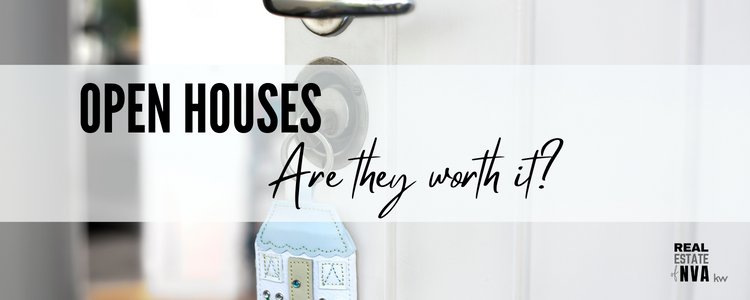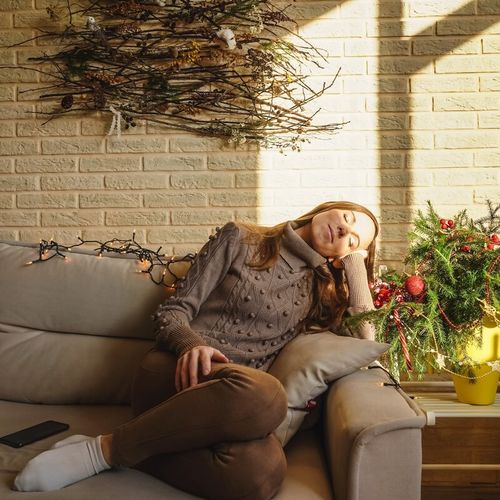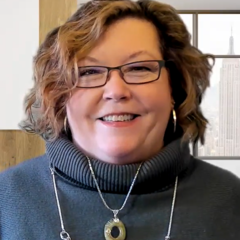Before Covid-19, open houses were a weekend staple activity for would-be homebuyers. However, as the pandemic put a halt to almost all in-person activities, the number of open houses dwindled—sellers didn’t want strangers in their homes and buyers didn’t want to be in the company of too many people.
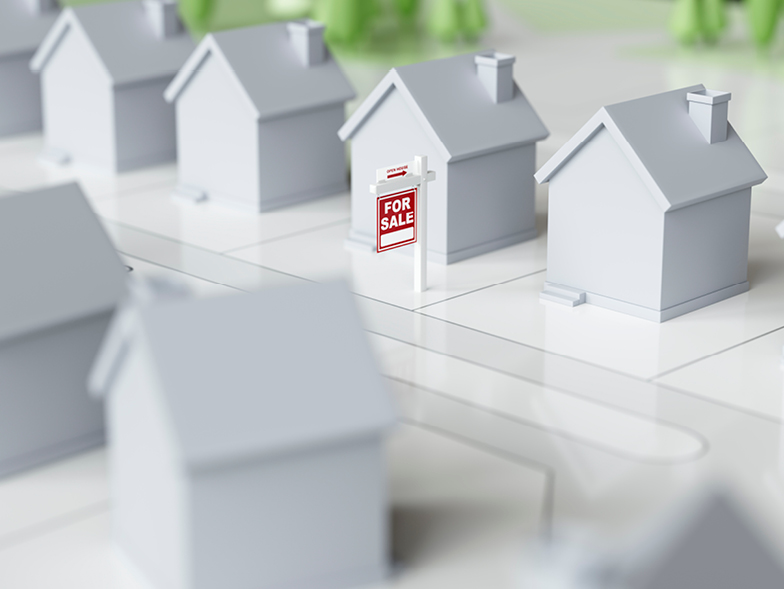
Although just 4 percent of buyers purchase their homes through open houses, 41 percent still visit open houses as their first step in the homebuying process. To overcome this hurdle, real estate professionals began providing virtual open houses for their clients. And due to the lack of inventory, during these past two years, it surprisingly became more commonplace for buyers to purchase a home sight unseen.
As of July 2022, the number of existing homes sold fell for the fifth consecutive month. This slowdown has impacted the number of days a home has been on the market forcing price reductions, which has resulted in an increase of available inventory in some real estate markets. Additionally, 44 percent of agents have reported that with this increase, they have observed a downturn in bidding wars. Hence, buyers who had been sitting on the sidelines waiting for a shift for more favorable market conditions, are now beginning to return to the homebuying process and real estate professionals are realizing the need to conduct open houses on a more regular basis.
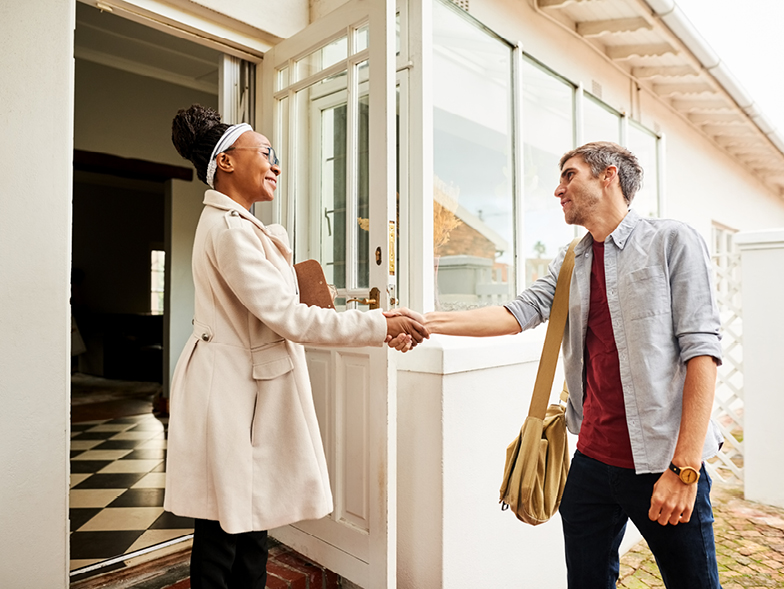
MAKING THE MOST OF OPEN HOUSES
Buyers
With busy schedules and juggling day-to-day activities, attending open houses may be more suitable for a buyer’s lifestyle as they begin the homebuying process. The flexibility it offers to view homes at their own pace is often a desirable option. Open houses are great tools for homebuyers to obtain as much information about a home in a more relaxed, stress-free environment. The key during this stage is to be looking at the location, neighborhood, community, lifestlyle, etc. more so than the actual home. At this stage the priority is choosing the location and lifestyle you desire, and interview potential real estate professionals whom you may choose to represent you for your purchase.
Ask pertinent questions
Viewing a home on the internet is not the same as visiting it in person. Before you attend an open house, come prepared with questions to ask the real estate agent to obtain in-depth knowledge of the home, it’s history and the community. Questions like, when was the home built? What is the age and condition of the roof, HVAC, HWH, windows? These are the big ticket items to budget for in the future for maintenance and replacement. TIP: I don’t know indicates it may not be something to highlight, however, MFG dates are either printed on the labels or are embedded in serial numbers. Gray streaking on the roof is an indicator of age. By asking the right questions, the buyer can obtain the necessary information about the home and diligence about the real estate professional.
Take notes
When visiting several open houses, make a list in order of their locations to make your day as efficient as possible. Keep a notebook handy to jot down information about each property since it’s easy to forget details when visiting multiple homes in a short span of time. Later, you can look over the information with the notes you have gathered to help in your decision-making process. TIP: Create a checklist and grade all homes in the same manner. Often times, a pattern starts to appear assisting you in your requirements definition.
Revisit the home
This is an opportune time to revisit a home you are on the fence about. It enables you to walk through the home at your leisure, weighing the pros and cons, and if you can envision you and your family living there. NOTE: Be sure to alert the listing agent at the open house that you have previously toured this home with another real estate professional.
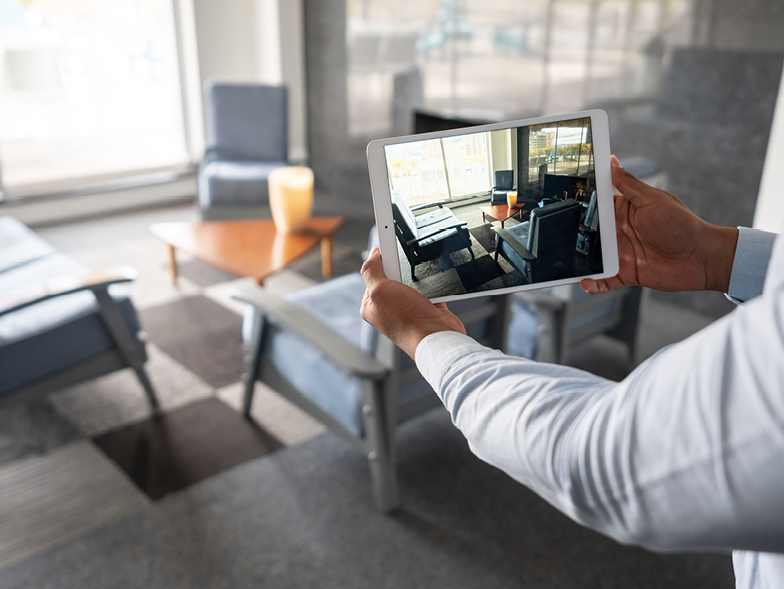
Sellers
The benefits of having an open house will increase the overall foot traffic into your home and create more visibility. The more exposure your home receives, the more likely you’ll receive multiple offers, possibly driving the sales price higher. TIP: Welcome the neighbors to attend. They are a wealth of knowledge regarding the community, be careful to keep them on a positive and objective track.
Stage to sell
Staging is a key part of the home selling process. Preparing your home for sale is essential to fetching the highest and best price. NAR reports that 82 percent of buyers find it easier to envision themselves living in the home when it is staged. Things like rearranging furniture, placing floral bouquets around the home, decluttering, and doing a deep clean, will help exemplify your home’s best features for potential buyers to see. Keep the notebook of future to do’s from coming out as buyers tour. Instead of having a buyer tour wondering will my couch fit here or will my bedroom suite fit in here, how will I use this room, etc., you want them to start feeling like this is their new home and they are envisioning their lives unfolding in the home.
Elevate curb appeal
The appearance of your home’s exterior is critical to creating a positive first impression. In fact, elevated curb appeal can increase the price of your home by an average of 7 percent. Be sure your lawn is well-manicured, bushes are trimmed, weeds are pulled, a fresh coat of mulch has been applied, and the entryway is free of dirt and grime. This is the first indication of how you treat and maintain your home.
Scheduling an open house
You and your real estate professional should agree on the best days and times to have an open house. If possible, ask your agent to schedule your first open house the week your home is listed which typically generates the most traffic. Also, keep in mind, during the fall season when football is in full swing, consider scheduling an open house on Saturday rather than Sunday to maximize foot traffic. Tip: Sellers should do all they can to be absent from the home during an open house— buyers are more apt to explore and ask the agent more pointed questions when sellers are not present.
BOTTOM LINE
To make the most of an open house remember:
1) Buyers should come prepared to ask the real estate professional questions regarding essential information about the home and community and take copious notes for later review to help in the decision-making process. In most situations, the real estate professional representing the home is not the listing agent providing an opportunity gain objective information and provide feedback back to the listing agent and seller.
2) Staging and elevating the home’s curb appeal are critical to creating a lasting positive first impression which has shown to increase the sale price by an average of 7 percent. Staging does not necessarily equate to furniture. Empty homes are a form of staging too. Condition matters more than ever for the buyers in the market today.
Selling? Be sure to check out the Home Valuation Tool and email me for your personalized Home Value Report!
Buying? Calculate Your Future Mortgage and check out rates!
Check out the Home Buying and Selling Guides!
I look forward to speaking to you soon!


